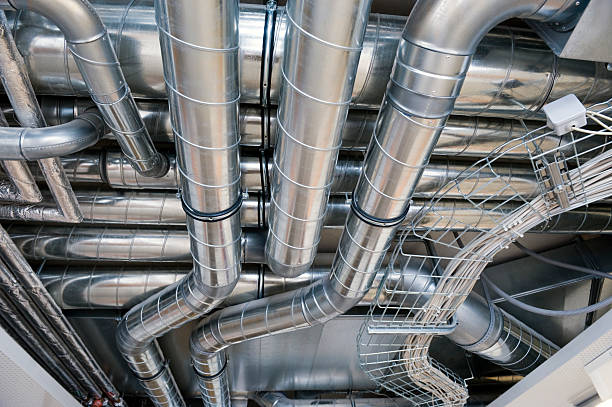Chill Out and Heat Up: Mastering Your Home's Comfort Zone
Chill Out and Heat Up: Mastering Your Home's Comfort Zone
Blog Article

In today's fast-paced world, maintaining comfort in our homes has become a top priority. The ability to control the temperature indoors not only enhances our quality of life but also contributes to our overall well-being. Heating and air conditioning systems play a pivotal role in creating a comfortable environment, allowing us to retreat from the extremes of the weather outside. Whether it’s the biting cold of winter or the sweltering heat of summer, a well-functioning HVAC system ensures that we can relax and enjoy our living spaces year-round.
Understanding how to effectively manage your heating and air conditioning can lead to significant energy savings and improved comfort. With the right knowledge, homeowners can optimize their systems for maximum efficiency, ensuring that they stay cozy in the chilly months and cool during the hotter days. In this article, we will explore various tips and strategies for mastering your home's comfort zone, helping you make the most of your heating and air conditioning systems while fostering an inviting atmosphere for you and your family.
Understanding HVAC Systems
HVAC stands for heating, ventilation, and air conditioning, which are key components in maintaining a comfortable indoor environment. These systems work together to regulate temperature, humidity, and air quality in homes and buildings. Whether you're aiming to keep your space warm during the winter months or cool during the summer heat, understanding how HVAC systems operate is essential for both comfort and energy efficiency.
Heating systems typically include furnaces, heat pumps, and boilers that generate warmth. Furnaces are popular for their ability to heat air and distribute it throughout the space via ductwork. Heat pumps, on the other hand, can provide both heating and cooling by transferring heat in and out of the home. Boilers distribute heated water through radiators or in-floor systems, offering a different approach to achieving warmth.
Air conditioning systems serve to cool indoor spaces, often using refrigerants to absorb heat from the air. Central air conditioning units are commonly paired with heating systems and utilize ductwork for even cooling. Alternatively, ductless mini-split systems allow for individual room control, offering flexibility and energy savings. Both heating and air conditioning play crucial roles in creating a comfortable living environment, and understanding their functions can assist homeowners in making informed decisions regarding their HVAC systems.
ApexHeatAndAC Energy-Efficient HVAC Solutions
Tips for Optimal Temperature Control
Finding the ideal temperature for your home can be a balancing act, but with a few strategic approaches, you can create a comfortable environment year-round. Start by setting your thermostat to a consistent temperature that suits your lifestyle, generally around 68 degrees in winter and 78 degrees in summer. Consistency not only ensures comfort but also helps reduce energy consumption, saving you money on utility bills. Additionally, consider using a programmable thermostat to adjust the temperature according to your daily routine, allowing for energy efficiency while you’re away.
Another effective way to regulate temperature is by ensuring your home is well-insulated. Proper insulation keeps the heat in during colder months and the cool air in during hot summer months. Check for gaps around windows and doors, and seal any leaks to prevent airflow loss. Adding heavy curtains or thermal blinds can significantly improve your home's insulation, helping to maintain your desired temperature with less reliance on heating and air conditioning systems.
Regular maintenance of your heating and air conditioning systems is crucial for optimal temperature control. Schedule annual check-ups to ensure that your units are operating efficiently. Clean or replace filters as needed, as dirty filters can restrict airflow and reduce system effectiveness. By maintaining your equipment, you enhance its performance, prolong its lifespan, and ensure your home stays comfortable throughout the changing seasons.
Energy Efficiency and Cost Savings
One of the most significant benefits of modern heating and air conditioning systems is their improved energy efficiency. Energy-efficient units consume less power while providing the same level of comfort, translating into lower utility bills. Many newer models feature smart technology that allows for precise temperature control and scheduling, further optimizing energy usage. By upgrading to high-efficiency systems, homeowners can reduce their environmental footprint while enjoying a comfortable living space.
In addition to the savings on monthly energy costs, investing in energy-efficient heating and air conditioning systems may qualify homeowners for various incentives and rebates. Many utility companies and government programs offer financial assistance for upgrading to energy-efficient appliances. This can significantly offset the initial investment, making it not only a smart choice for comfort but also for long-term financial benefits.
Regular maintenance of heating and air conditioning systems plays a crucial role in ensuring optimal performance and efficiency. Simple tasks, such as cleaning or replacing filters, checking ductwork for leaks, and scheduling annual professional tune-ups, can prolong the life of the systems and prevent costly breakdowns. By prioritizing maintenance, homeowners can enjoy reliable comfort while maximizing energy efficiency and minimizing unnecessary expenses.
Report this page